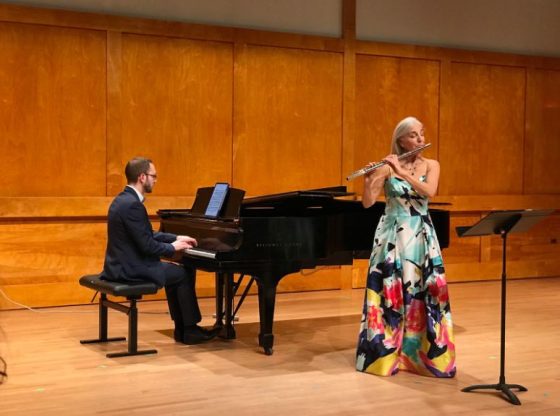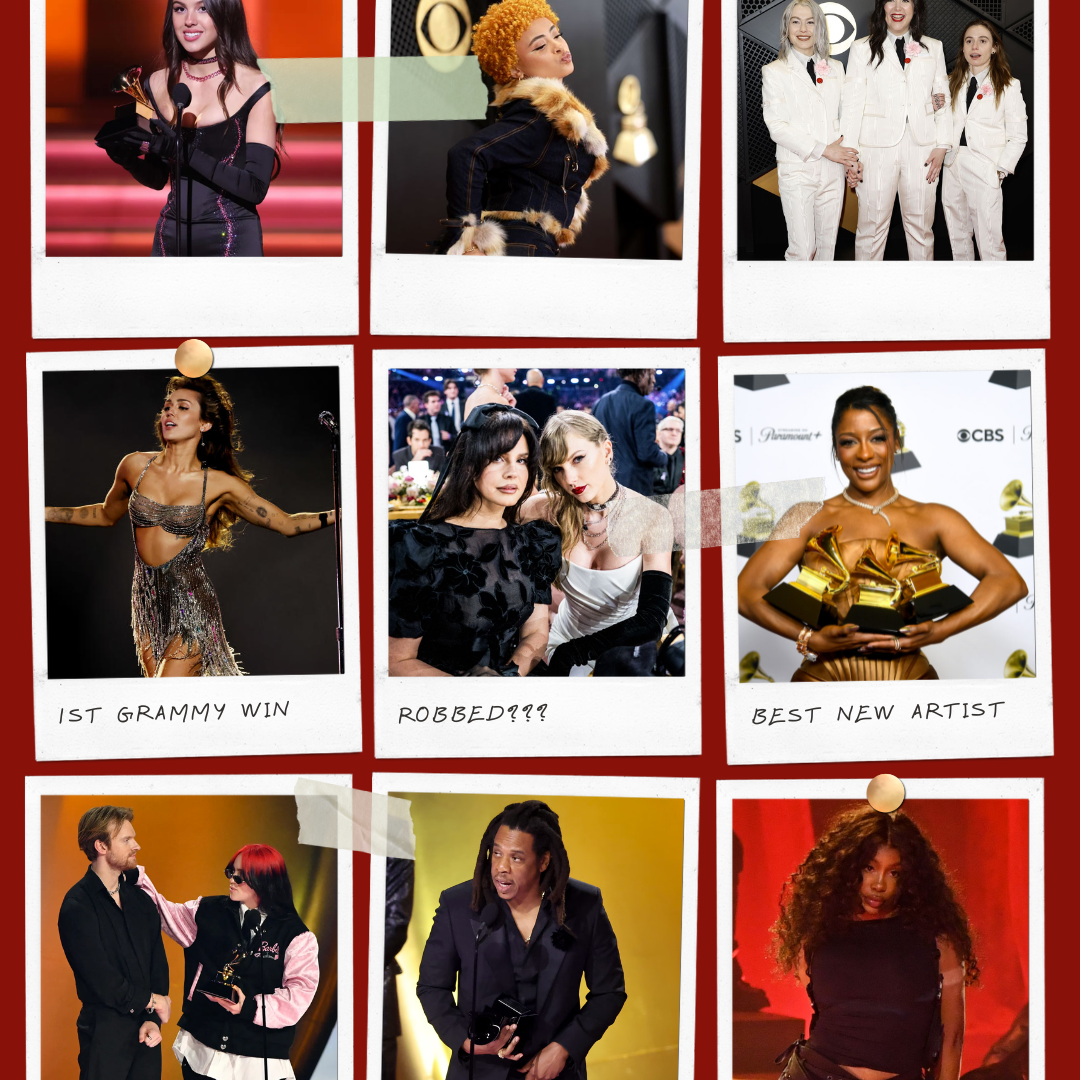
As the lights went dim, the stage light shot through the darkness to illuminate a figure in a gleaming floral gown with a silver flute winking in the light. On stage was Carol Wincenc, the Grammy-nominated and critically acclaimed American flutist.
Having been rescheduled twice as a result of the pandemic, Wincenc regarded the opportunity to finally showcase the curation of pieces on April 21 with much relief and joy. Her enthusiasm and passion shone through in her music.
Opening up with “Poem for Flute and Orchestra (or Piano)” on Stony Brook University’s Staller Recital Stage, Carol Wincenc’s “50th Anniversary: It’s Golden!” program kicked off with a gorgeous blend of both neo-romantic and nostalgically freeform tones.
The piece was created in 1919 by Charles T. Griffes, who, before making this musical score, had passed out from exhaustion and illness. The low and languorous melody of Matthieu Cognet’s piano accompaniment segued into a playful flute solo carried by Wincenc, taking on an unsuspectingly upbeat melody compared to the opening. Slowly, notes of tranquility eased back into the piece, concluding with the same haunting yet serene notes from the beginning.
“It is a gift,” Wincenc wrote in her reflection, “to work side by side with my esteemed Stony Brook University Music Department teaching colleagues, alumni, the brilliant pianist Dr. Matthieu Cognet and the music department staff, where appreciation, understanding and warmth abound.”
Cognet, a Stony Brook University alumnus, continued to play through a multitude of scores with Wincenc. The first piece was followed by “Sonata for Flute and Keyboard in B Minor, BWV 1030,” one of the only pieces of secular music J.S. Bach had ever composed in his professional life. Using traditional Baroque bass accompaniment and delicate new textures such as the flute, Wincenc and Cognet conveyed a refreshing new take on an older chamber piece in two movements.
Along with “Morceau De Concours for Flute and Piano” and “Sonata for Flute and Piano,” Wincenc and Cognet swept the audience away for a night of wistfully beautiful operatic scores.
The evening of familiar melodies was soon put to a standstill with the special guest appearance of Larry Alan Smith, an internationally recognized composer, commonly praised by the New York Times as “a young composer with many great gifts.”
“What an honor it has been to write a celebratory work for the 50th Golden Anniversary of flutist Carol Wincenc,” Smith wrote. “I have known Carol for most of those 50 years, and I have always admired her remarkable artistry and her seemingly endless energy.”
The work titled “Quintet” implemented the use of flute, oboe, viola, cello and piano to blend a rich and unusual mixture of harmony punctuated by occasional percussion.
Smith had composed a five-movement piece for Wincenc to commemorate the occasion using an interesting technique to create the tune of the piece.
“I enjoyed making use of words, names and numbers as I created this music. C-A-R-O-L became C-natural, A-natural, B-natural, G-natural, D-natural, sometimes D-flat — and W-I-N-C-E-N-C takes the tuneful and generally diatonic shape of G-natural, A-natural, F-natural, C-natural, E-natural, F-natural and C-natural,” he said, demonstrating with some notes on the stage piano.
“This is just the tip of the iceberg, and while knowing all my compositional secrets is not required to enjoy the piece, please know they are there, and they all pay tribute to the golden career of Carol Wincenc.”
The remainder of the night was reserved for two other pieces, first of which was “Amazonia,” a haunting piece dedicated to the growing rift between human greed and worldly compassion, and the second one being “A Samba,” composed by Andrew Thomas and commissioned by Wincenc herself. Between the lasting message “Amazonia” carried and the hopeful tune of “A Samba,” Carol Wincenc’s “It’s Golden!” closed with a quintessential idea: the role of music as an impactful language.

















